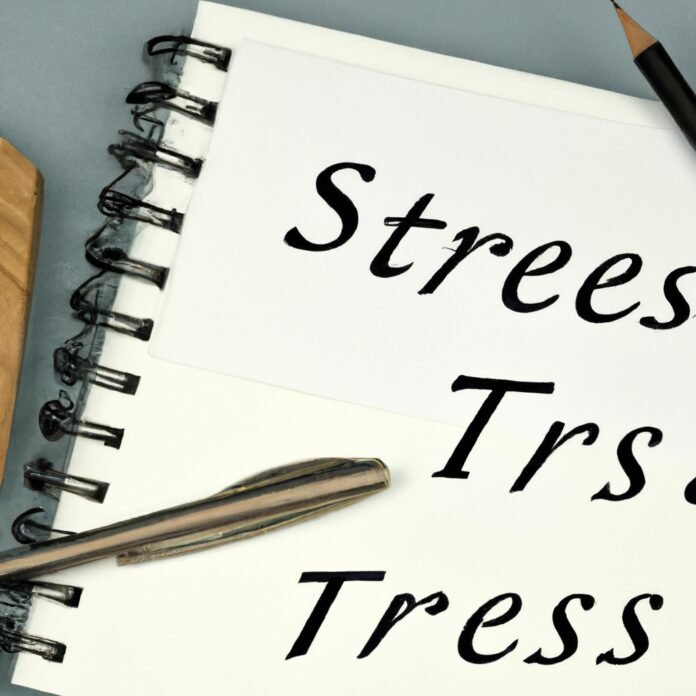Life is filled with stress, it’s an unavoidable experience shared by everybody. For most, it can feel overwhelming. In the hope of finding a balance and coping with stress, it is important to recognize your own needs and build healthy tools to restoring and maintain your resilience. This article will present some practical tools that will help you counteract stress and live a more balanced life.
1. Recharge and Connect with Yourself
We all need to connect with ourselves from time to time to recharge, rest and relax. Here are a few tips to help you get started:
- Take a short break – Allow yourself to step away from your daily routine. Increasing your self-awareness can help you to identify if you need to recharge.
- Exercise -Physical activity is a great way of connecting with your body. Whether it’s a long walk or a quick jog, find something that works for you.
- Unplug – Taking a digital detox can be hugely beneficial for our overall wellbeing. Social media can be an emotional roller coaster, often making us feel more inadequate, so put down your phone and give yourself a break.
- Brush up on your passions – Refuel your creativity by trying something you love or getting back to basics with a hobby you enjoyed in the past.
- Find your own space – Spend some time in a quiet place where you can focus on being in the moment. It could be a library, a park, or even your favourite spot at home.
Switching off from the world around you can be liberating and help to get you back on track. It allows you to stop, relax and truly focus on who you are, without any outside distractions.
End your day with reflection – Pen your thoughts down in a journal, write freehand or even type them out – it’s totally up to you. This allows you to track your progress in an honest and productive way.
Spending time with yourself is essential for a healthier version of you. Get in touch with your feelings and the values you stand for to give yourself the caring you need.

2. A Balanced Lifestyle is Essential
Living a balanced lifestyle means having a healthy relationship with the everyday obligations of life. An important part of staying healthy includes finding a harmonious balance between work, rest, and play. Here are some tips for maintaining that balance.
- Designate ‘me-time’ – take regular breaks away from your schedule to enjoy activities like reading a book, going for a walk, engaging in hobbies, or taking a virtual yoga class.
- Find a way to stay organized – prioritize tasks and set achievable goals. Set deadlines for yourself and stick to them.
- Get enough rest & relaxation – make sure to get plenty of sleep each night, as well as take time out during the day to relax and unwind.
- Exercise & physical activities – find activities that you can fit into your schedule and make sure to practice them regularly.
- Train your brain – challenge your mind with puzzles, tasks, and activities like yoga, meditation, and mindfulness practices.
- Seek out support – find a support system of family, friends, or mentors who can help you stay balanced and inspired.
The goal of a balanced lifestyle isn’t necessarily about achieving perfection, but finding a way to lead a healthy life. As you strive to find the perfect balance between work, rest, and play, keep in mind that it will look different for everyone. The key is to take the time to find activities that invite joy into your life and bring your attention and energy back to the things that make you the most fulfilled. Just remember to be kind to yourself throughout the process and remember that it takes time perfect the balancing act.
3. Identifying Stressors and Taking Action
Stress can come from anywhere in life—work, family, relationships, finances, or even from a health issue. The key is to identify the sources of your stress, focus on being proactive, and take action. Here are some tips:
- Develop an action plan: If you’re feeling overwhelmed, make a list of the tasks you need to accomplish and the prospective stressors in each task. Prioritize the tasks and decide which ones you need to focus on first. This will help to keep you organized and focused.
- Take a break: Step away from whatever situation is causing the stress, even if it’s just for a few minutes. This can give you some much needed perspective on the problem and help with gaining control of the situation.
- Find a solution: Identify the things that you can realistically change in order to reduce the stress. Think creatively and come up with solutions that might not be obvious. Find ways to work through the problem or come up with a new plan of attack.
- Seek help: Don’t be afraid to ask for help. Talk to friends, family, or a therapist if you need to. Seeking out others who can offer support and advice can be a great way to reduce your stress and alleviate the problem.
By making a plan of action and implementing it, you can reduce your stress and take control of the situation. Establishing certain routines, such as regular exercise or meditating, can also help you stay balanced and better equipped to deal with stressful situations in the future.
Don’t let stress rule your life. Start by identifying the stressors and then try to come up with ways to start taking action. A few simple steps can make a big difference.
4. Finding Resilience in Challenging Times
The last few months have been difficult for everyone. We are all searching for ways to stay strong and remain resilient during this period of uncertainty. Here are some tips to help you cope with the many challenges life can throw at you:
- Create a supportive community: Reach out to friends and family, or even join a group online for support and understanding. Having a support system of people you can trust can make managing difficult times easier.
- Make positive choices: Choose to do things that help you stay physically and emotionally healthy. Exercising, eating well, and getting enough sleep are all important forms of self-care. Also, it helps to choose to focus on what you can do, not what you can’t.
- Manage your stress: It is important to take time for yourself and practice calming activities to manage stress. Do something you enjoy such as reading a book, going for a walk, or meditating. It is also important to practice self-compassion, take breaks, and set realistic goals.
- Have faith: Having faith that everything will be ok in the end can give you hope and strength to stay resilient amidst difficult times.
It is ok to feel overwhelmed and to take some time for yourself. Don’t be afraid to ask for help if you need it. Above all, remember that these difficult times will eventually pass, so take it one day at a time to make it through.
Sometimes it can be helpful to talk to a professional therapist or counselor. A therapist can help you gain insight into your thoughts and feelings, and also help you find ways to resist feelings of despair and hopelessness. Therapists can also provide guidance on how to make lifestyle or other changes that can help you better manage difficult situations.
At the end of the day, just remember that it is normal to feel overwhelmed. Be kind to yourself and trust that you can find the inner strength to stay resilient in these challenging times.
Stress is a part of life, but it does not have to control us. By learning how to manage our emotions and find a balance in life, we can start living life to its fullest and keep our mental health in check. So start building your stress-fighting toolkit, find the strategies that work best for you, and start making stress an inconvenience instead of a hindrance. All you need to do is give yourself a little TLC – and you’ll be living your life in balance in no time.

